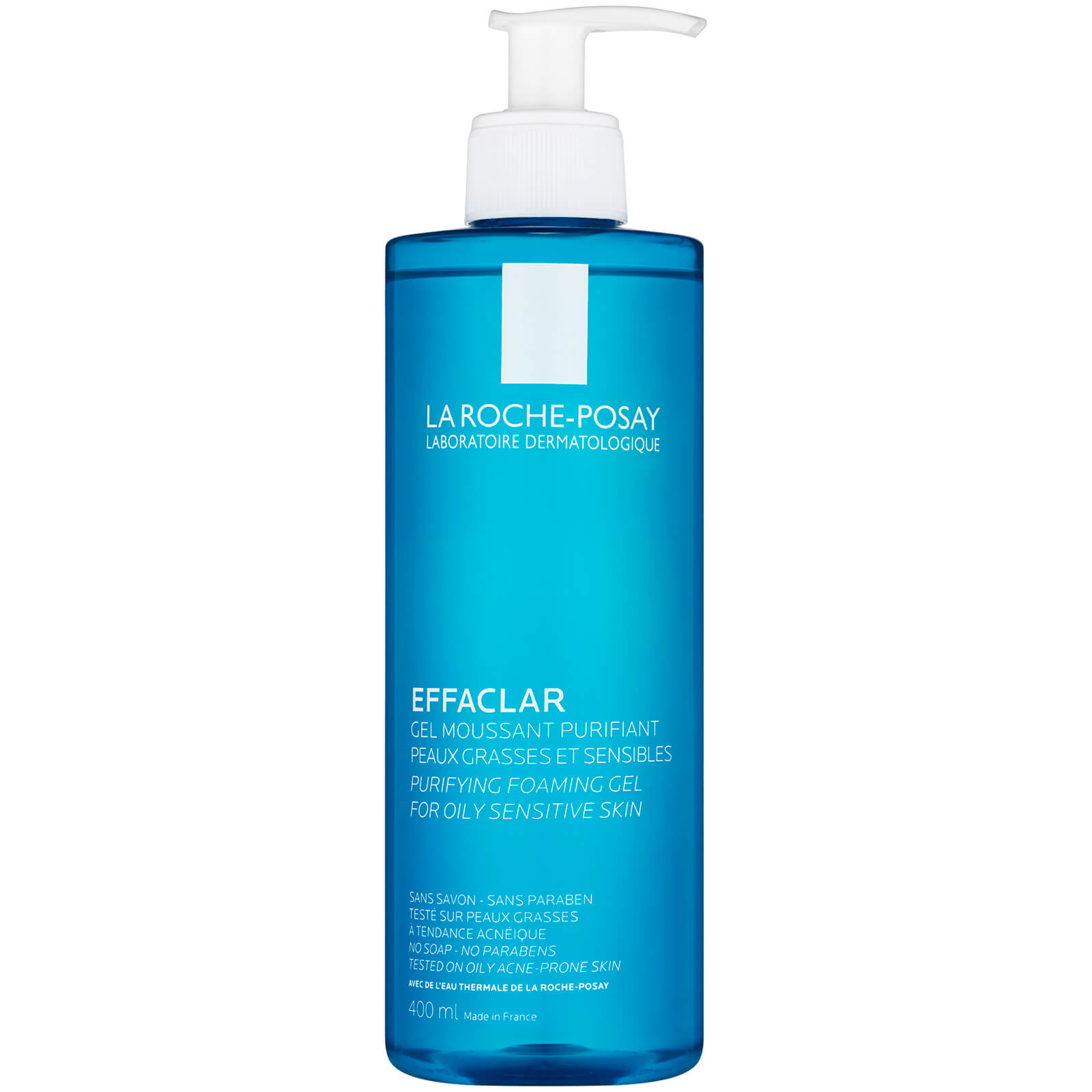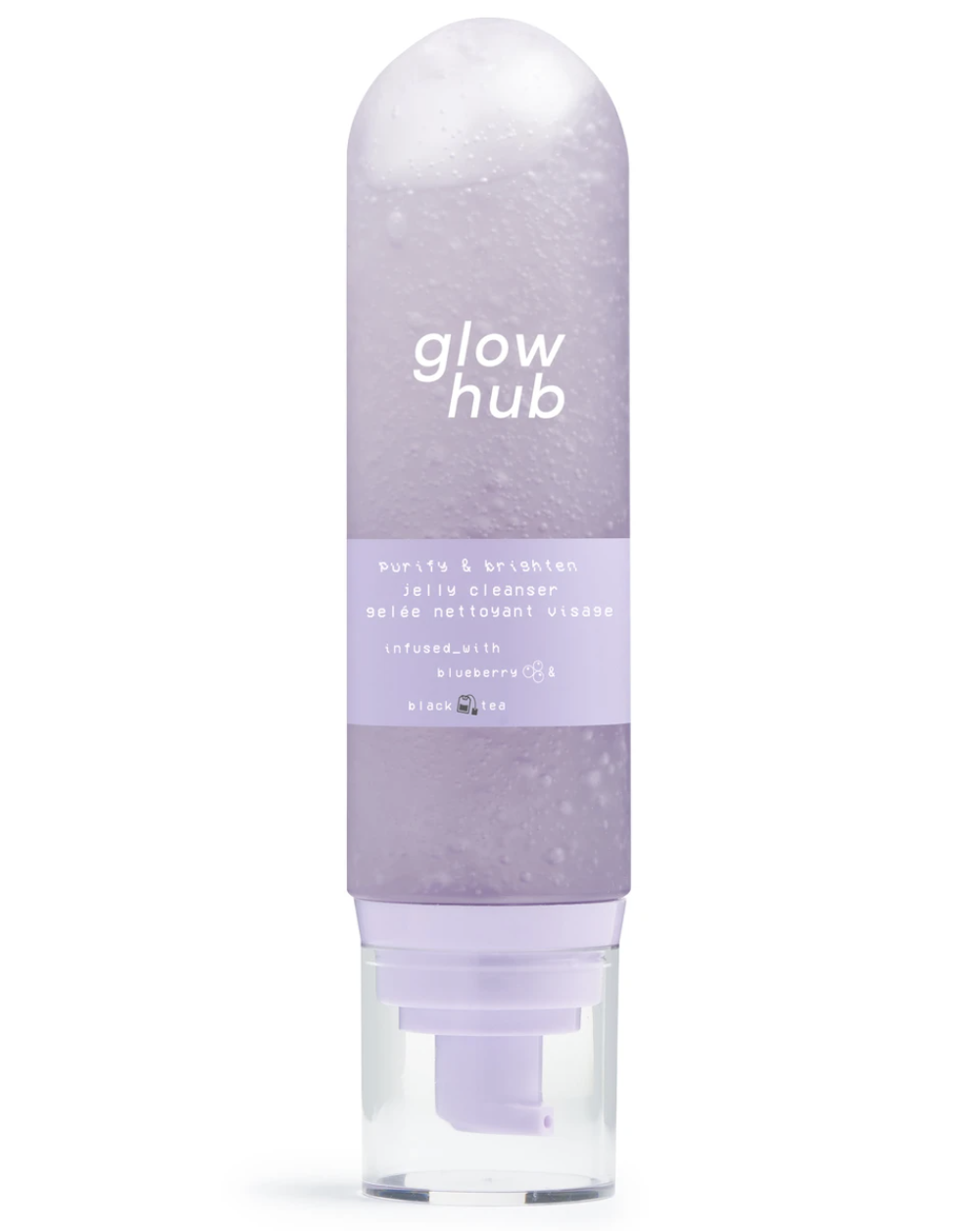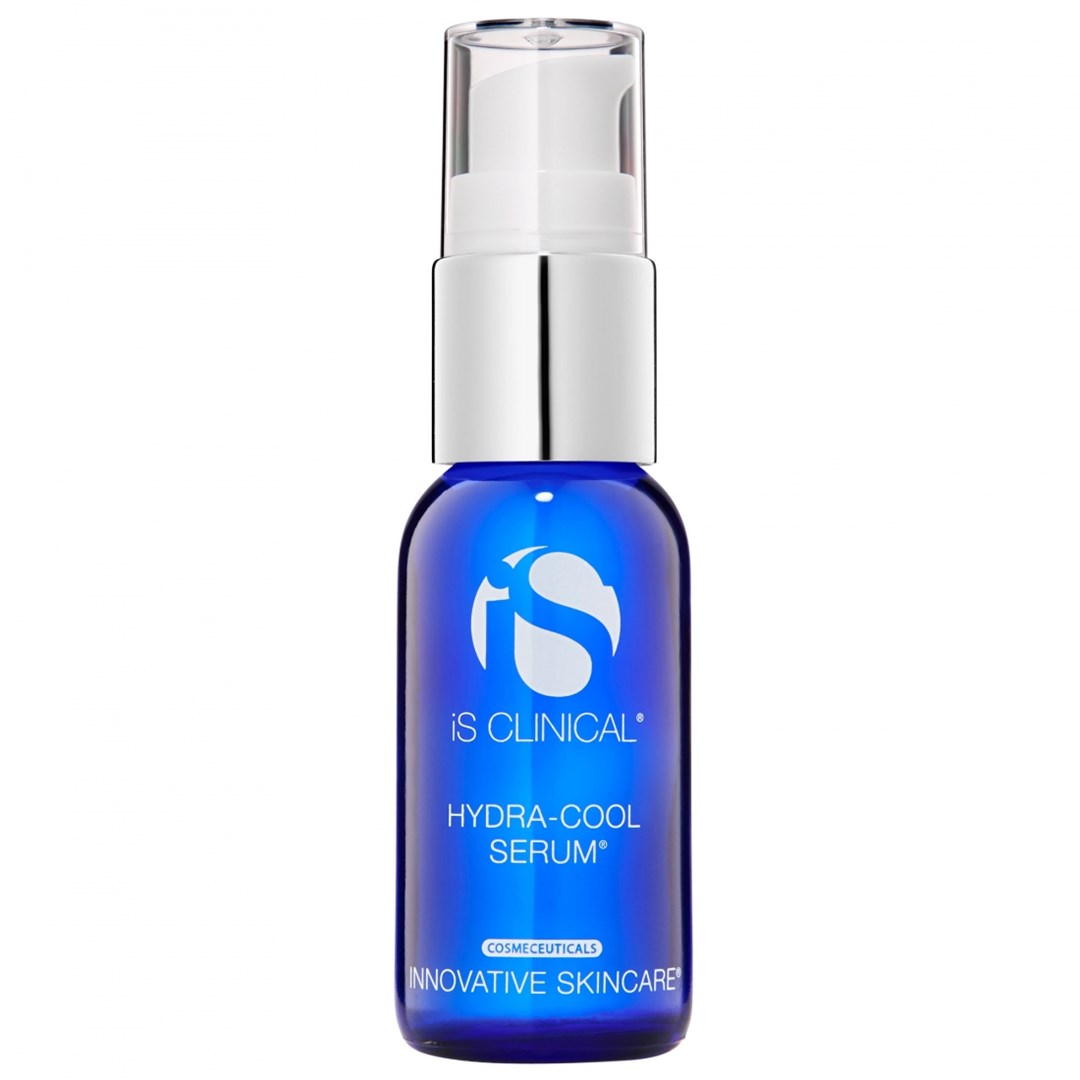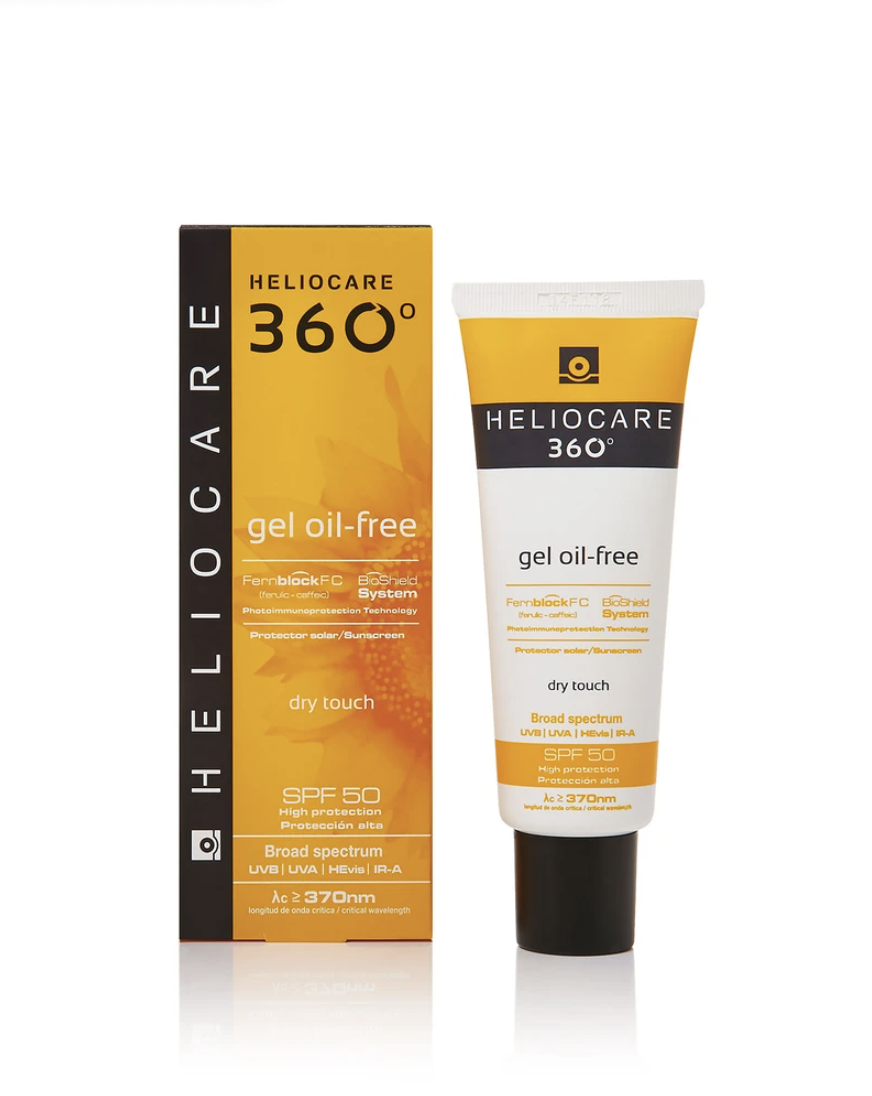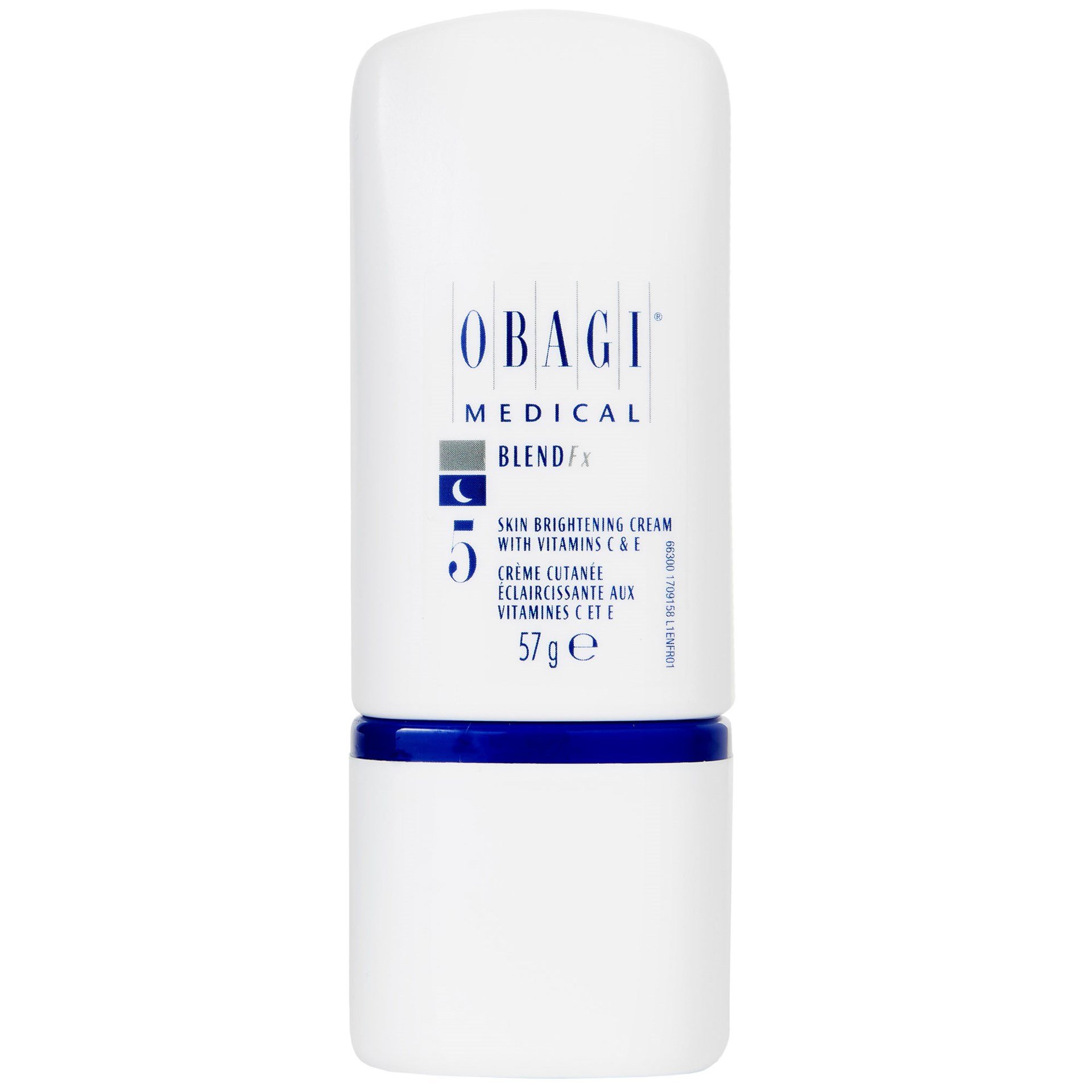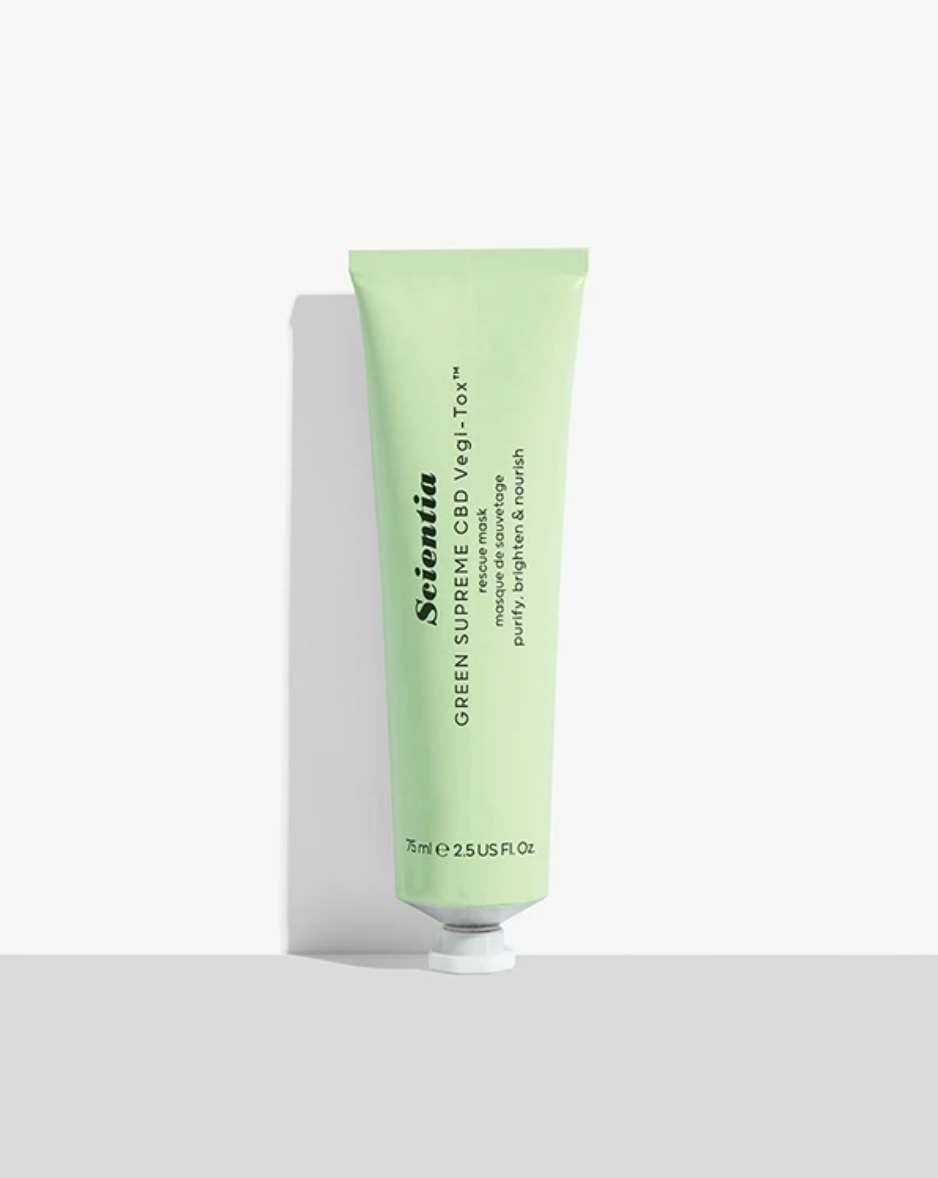I Asked 10 Skin Experts How to Actually Get Rid of Acne—Here's What They Said

I'm going to jump right in and say it: There is no quick fix for acne. I've been dealing with it since I was 14 years old and have tried pretty much everything out there to keep it in check. Antibiotics, the contraceptive pill, private dermatology appointments, basically any product on the market promising to bust breakouts, you name it, and I've tried it. I'm now 31 years old and despite having access to amazing skin experts and the most highly recommended products, I still experience regular breakouts and painful spots. Why? Because despite what marketing might have you believe, one of the main causes of acne is hormones, and there's no amount of expensive serum that's going to change that.
"Acne is increasingly being considered a chronic disease," explains consultant dermatologist Dr Anjali Mahto, BSc, MBBCh, FRCP. "This means that whilst it may be controlled, there might be no long-term cure. Treatment can be successful, but acne can recur over time. Coming to terms with this and realising there is always a possibility it may come back is the first step to acceptance of this condition."
However, despite all that, there are things that can be done to help keep acne under control, which is why I think that getting professional advice and product recommendations from skin experts is invaluable.
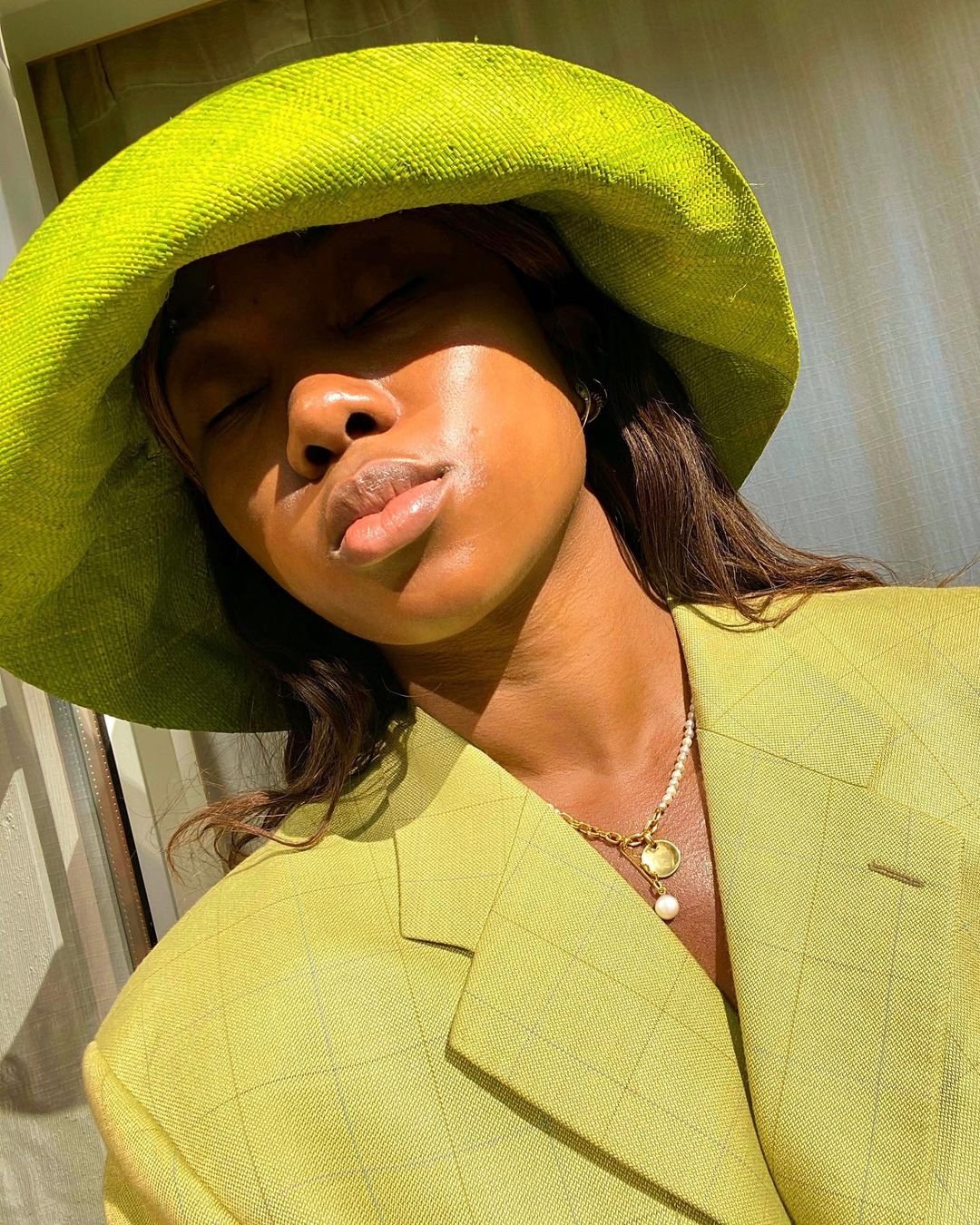
Ahead, I speak to nine skin experts about everything from what acne is and how to get rid of it to how to look after spot-prone skin and their professional product recommendations for dealing with breakouts. Keep scrolling for the full low-down.
What actually causes acne?
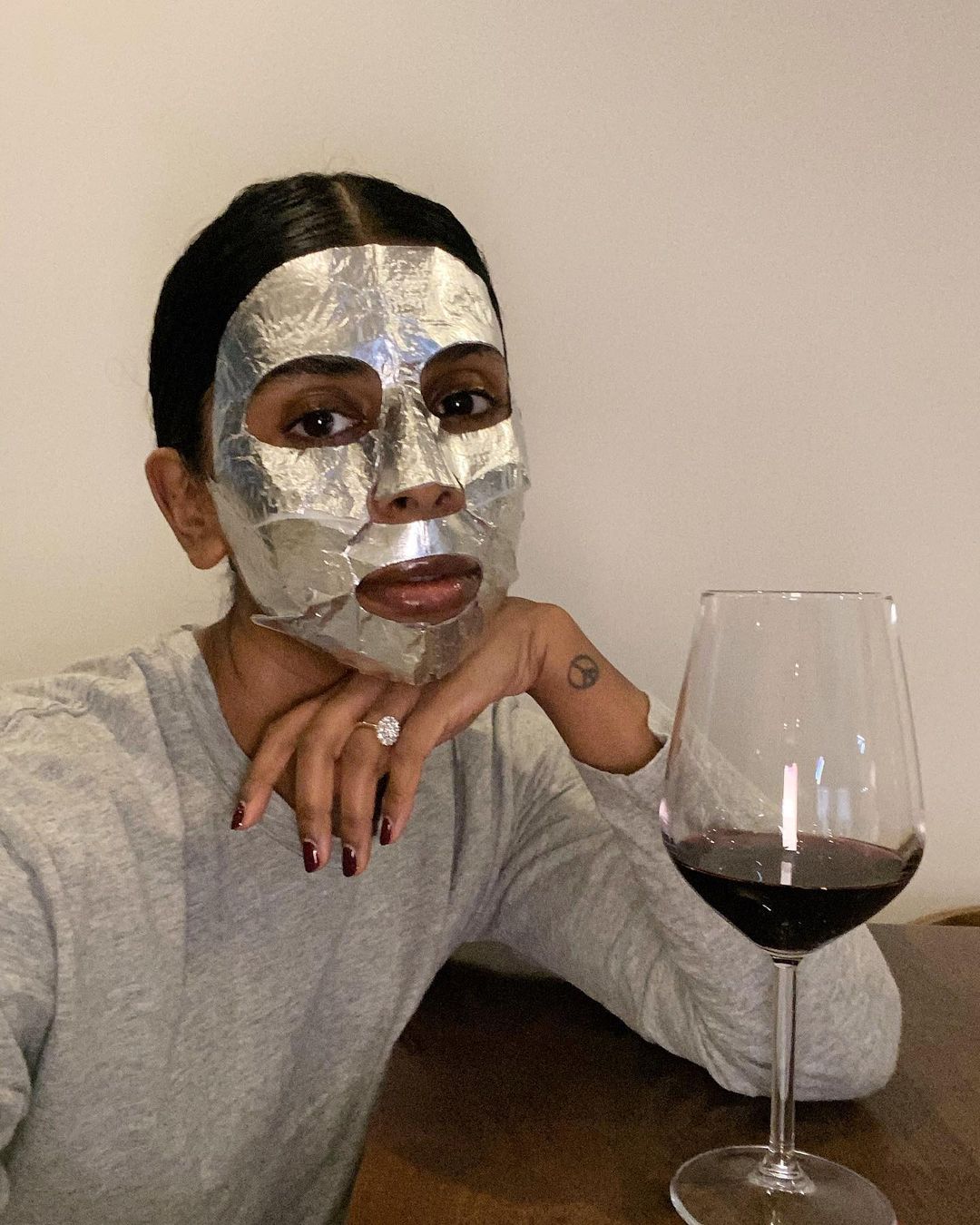
So before we get into how to treat acne, it's important to understand what actually causes it. "We wish there were a straightforward answer to this question," say ZitSticka founders Robbie Miller and Daniel Kaplan. "The answer is as layered and nuanced as breakouts are annoying." However, it's clear that hormones are most definitely at play when it comes to the leading cause of acne. "A 2013 Brazilian study of people with adult acne found that the majority of the women surveyed had higher-than-average levels of both androgen and dehydroepiandrosterone—two hormones involved in menstruation," explain Miller and Kaplan. "Unfortunately, due to hormones, it's documented that women disproportionately suffer from acne compared with men."
As for the physical effects on the skin? "Regardless of whether you are a teenager with acne or an adult, the changes occurring in our skin when we suffer with acne are the same," says Anita Sturnham, MD, a GP specialising in skin health. "We see enlarged, inflamed pores, a build-up of sebum and old skin cells clogging these pores, and we see an overgrowth of acne-causing bacteria. Hey, presto, add these things together, and we get breakouts. The things that trigger these changes can be multifactorial. In my experience, there is often a hormonal trigger. For teens, this can be due to the fluctuating hormones in puberty and later in life, typically, sex hormones and/or adrenal hormone imbalance."
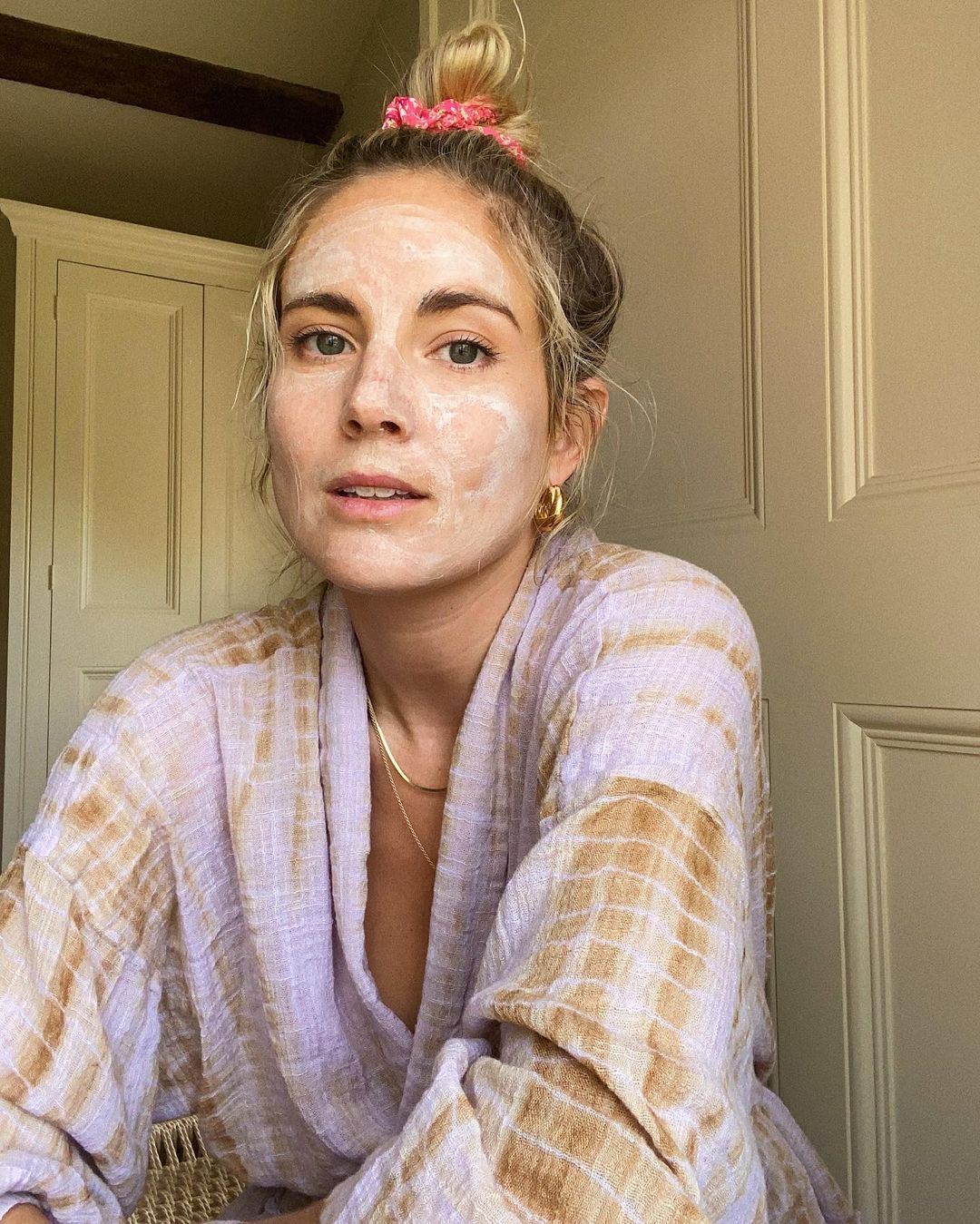
However, there's another factor that's undoubtedly contributing to a rise in the cases of adult acne, in particular, and that's stress. "When we're stressed, we produce more androgens, which stimulate the oil glands and hair follicles in the skin, leading to outbreaks," explains Osman Bashir Tahir, MBBS, MS, MRCS, MSc.
Of course, learning to keep calm and carry on isn't much use when anyone dealing with acne will know that waking up to a new crop of spots is stress-inducing in itself. However, I've taken some comfort in the fact that acne is way more common than I actually realised. "Acne affects over 80% of the population at some point in their lives, so people who escape unscathed are incredibly fortunate," says Mahto.
What common mistakes do people make when trying to get rid of acne?

The experts were unanimous that over-exfoliation and picking spots were two of the biggest mistakes that people make when treating acne-prone skin at home. In fact, not only do both things leave skin feeling inflamed and sensitive, but also, long-term, you're "more at risk of deeper scars and hyperpigmentation that are more difficult to treat," says Tahir. However, I was more surprised to learn that every skin expert I spoke to mentioned the importance of caring gently for the skin and not being afraid of hydration.
"Thinking that you need to remove all sources of moisture from your skin in case it might clog pores" is something that we should all be re-evaluating, says Omorovicza co-founder Margaret de Heinrich. "If your skin is lacking hydration, it can overcompensate by producing even more oil."
Neighbourhood Botanicals founder Micaela Nisbet agrees, stating that over-drying is the biggest mistake that people make. "When spots are coming to a head or at a head, they need drying and antibacterial treatments. After that, they need healing hydration," Nisbet explains. "Don't continue to put drying acne treatments onto spots that need to heal."
"There's definitely a misconception that acne is caused by dirty skin, and I think a lot of us take that into adult life," says Scientia founder Tiffany Salmon. "We look for products that are going to get rid of oil, strip the skin and dry out spots, but often that's going to do more damage than good. Yes, you want to look for key ingredients and actives that target those breakouts, but you also want to make sure you're not overwashing or over-stripping the skin too, as that's going to damage your moisture barrier, trigger excess sebum production and potentially make things worse."
How should we be caring for acne-prone skin at home?
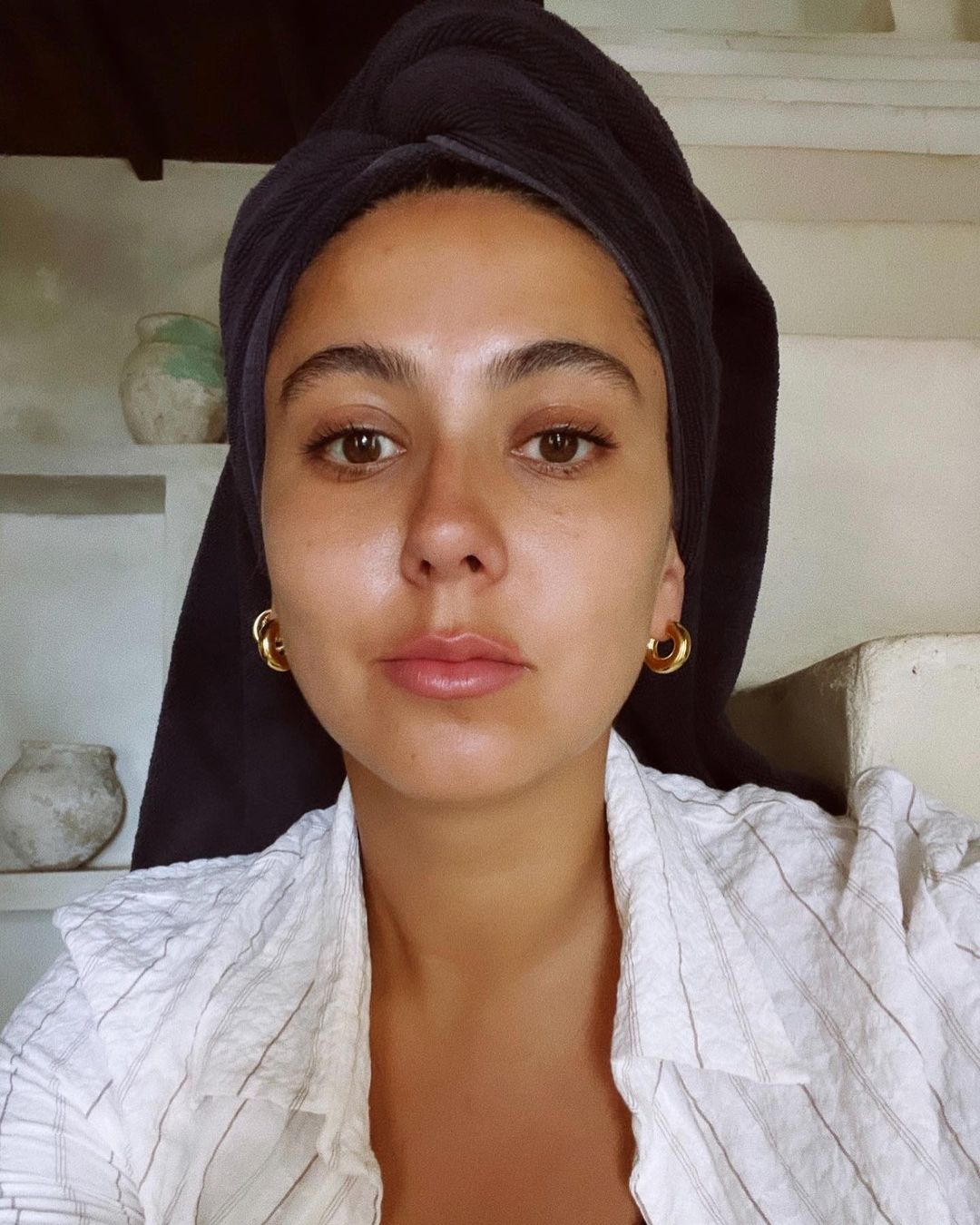
Acne is such a broad skin condition that it's hard to prescribe general advice that can work for everyone. "The kind of spots you are experiencing will determine what kind of treatment program to embark on," explains skin cosmetician and founder of his eponymous skincare brand Ole Henriksen. "Some constants should be [using] gentle cleansing products that don’t strip or irritate the skin; [looking] for products that contain salicylic acid, as this can help keep pores clean and blockage free; [drinking] plenty of water; and a good vitamin B complex can help with stress too."
Experts were also keen to stress the importance of going back to basics when it comes to skincare for acne-prone skin—something which I definitely struggle with in my role as a beauty editor when I'm constantly testing and trialling different products. "Follow a stripped-back regime that prioritises reducing inflammation and strengthening and rebuilding the skin barrier," says Tahir.
And in terms of formulations? "Stay away from using facial oils, cleansers and thick creamy textures in product," advises Mahto. "Stick to light or gel-like formulations. Ideally, the product should be labelled as noncomedogenic. Whilst this is not a guarantee the product will not make you break out, it is better than a product that is not labelled at all."
Keep scrolling for expert-approved product recommendations for treating acne:
Cleansers
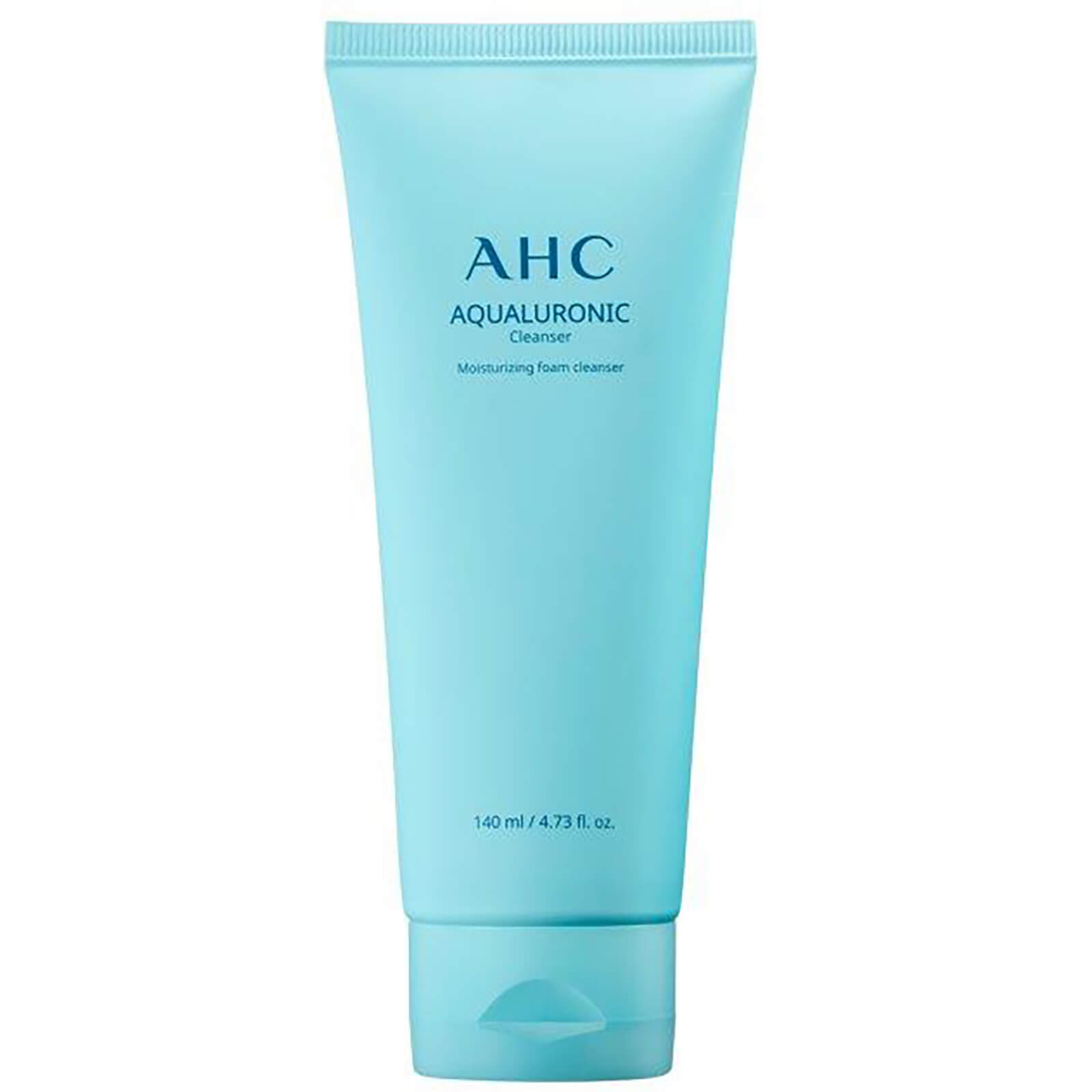
"This is a very smart formulation," says AHC lead aesthetician Ada Ooi. "It cleanses the skin and pores deeply with foam, but because it has a nourishing cream base, it doesn't strip the skin's natural barrier—leaving it feeling moisturised and refreshed at the same time."
Serums and Moisturisers
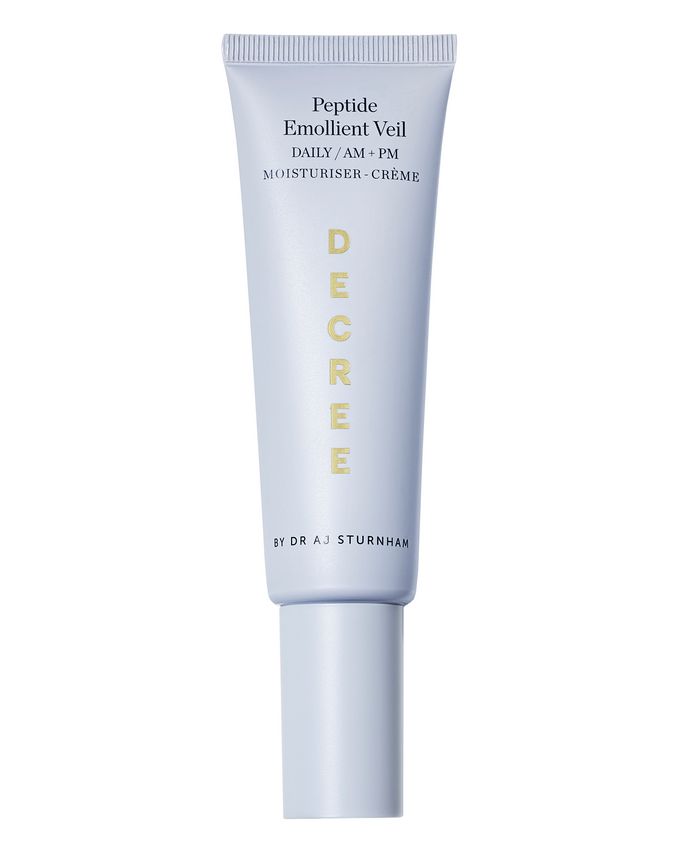
I avoided moisturiser for years for fear of weighing my oily skin down, but Sturnham explains that using one "acts as a protective barrier for your skin and locks in moisture, keeping the skin hydrated and its barriers strong." Choose a "protective, hydrating and non-pore-clogging one" for best results.
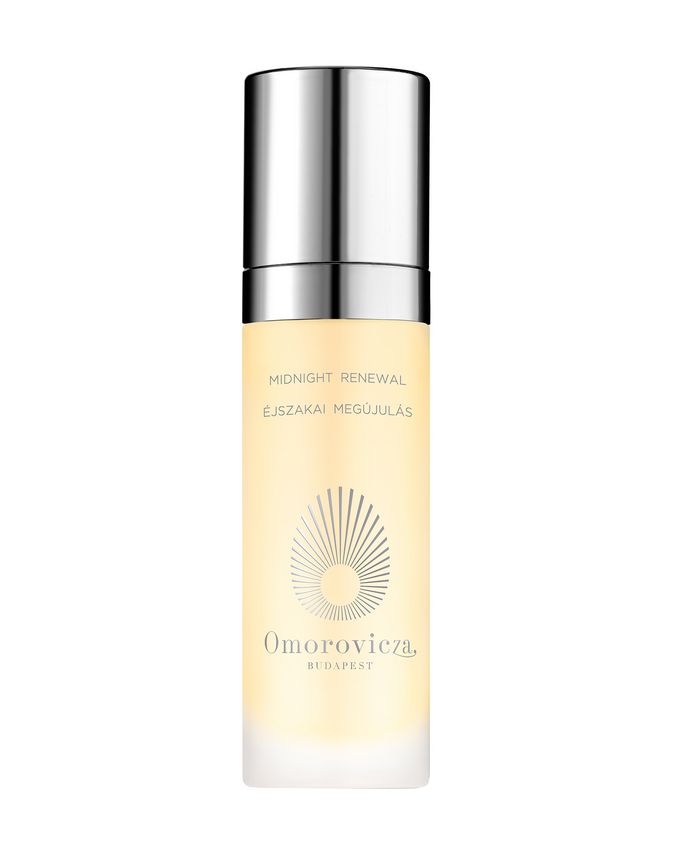
"Identify and persevere with a good nighttime routine and try a light, gel-texture retinal serum," advises de Heinrich. "Our Midnight Renewal uses a highly potent form of retinal, which is 11 times more effective than retinol, to help speed up cell turnover and act as an exfoliant. It also helps unclog pores to keep them clear and balances oil production, thus shrinking the pores to prevent them from getting clogged and inflamed."
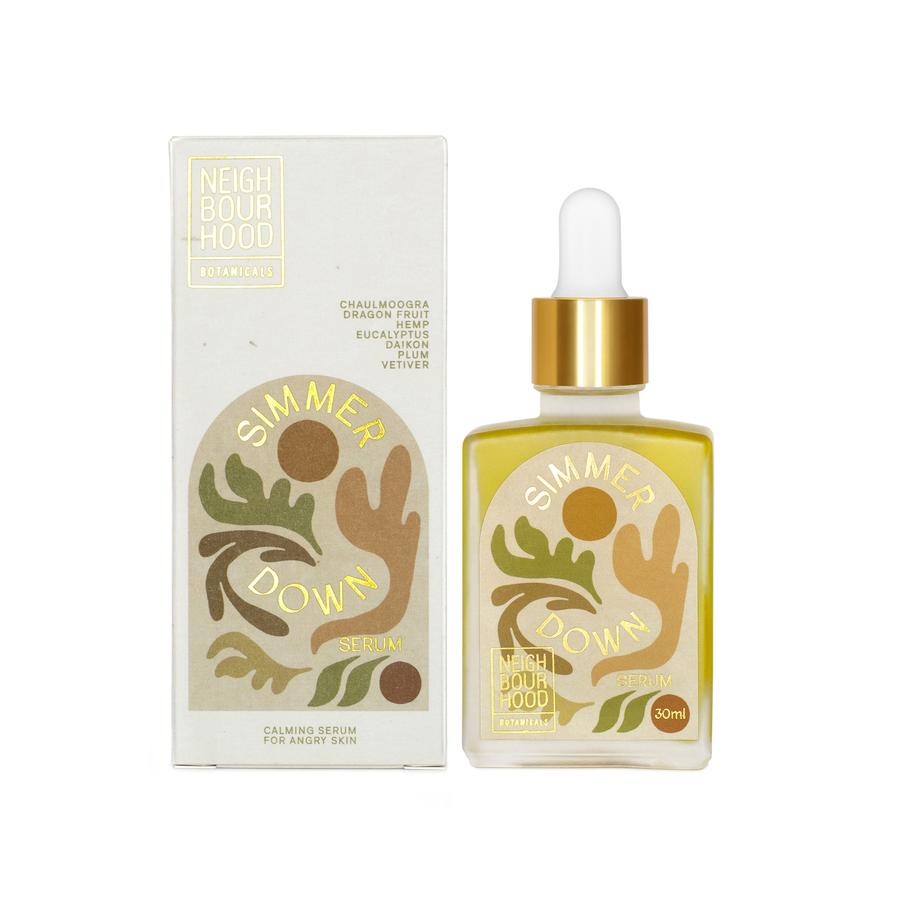
I was lucky enough to try this before it launched, and I have to say it's one of the most calming skin products that I've ever had the pleasure of using. The teeny lab bottle has lasted me a good three months, but I'll definitely be investing in the full size. "Our new Simmer Down Serum is the perfect blend of plant oils to fight bacteria that causes acne and to also calm inflammation and redness occurring from spots," says brand founder Nisbet.
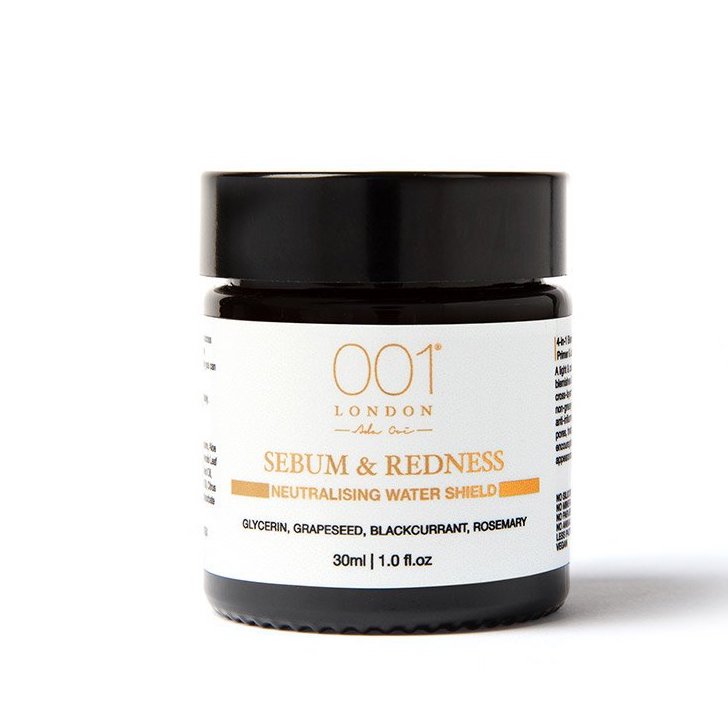
"Dab this on your spots," says Ooi. "It is a cooling and hydrating gel treatment that contains antibacterial and anti-inflammatory ingredients, like two types of mint and rosemary, to effectively calm inflamed spots and keep bacteria away—even under your face mask."
Exfoliators and Treatments
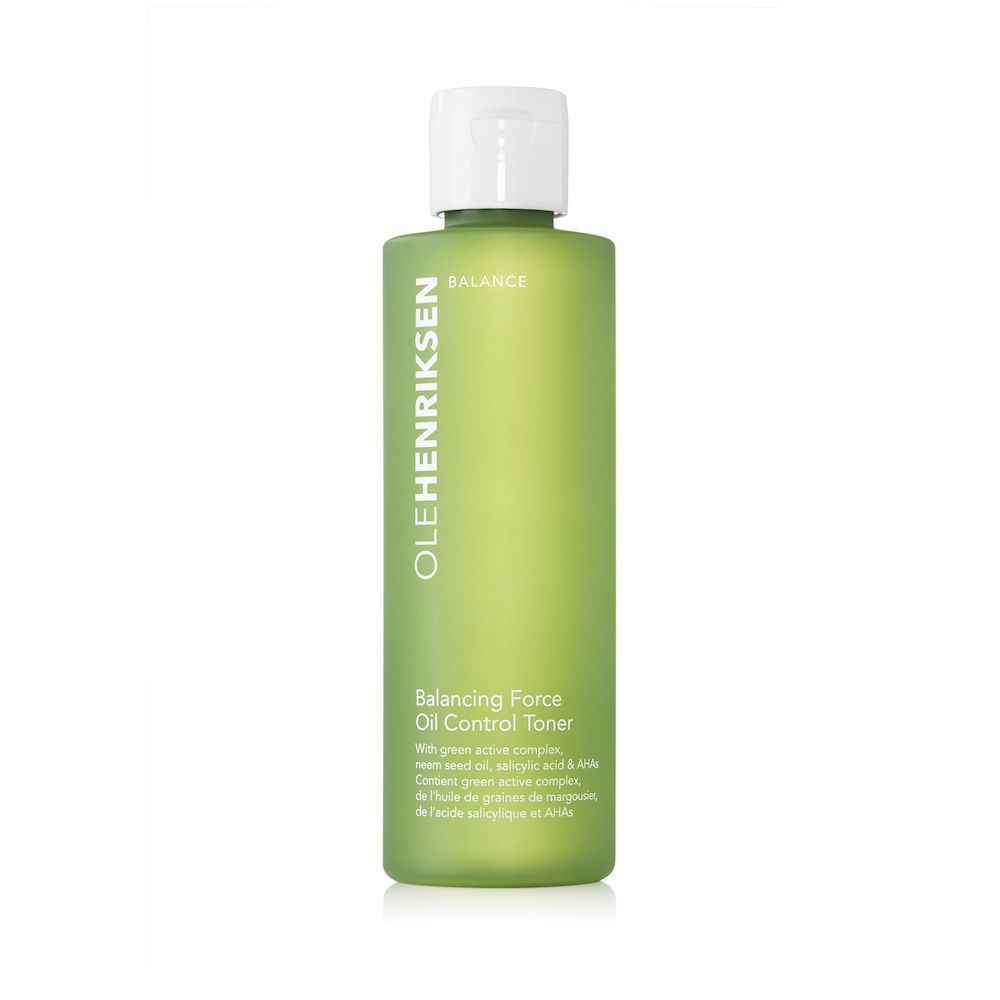
The Balance range from Ole Henriksen is brilliant at caring for acne-prone skin. "They utilise soothing anti-inflammatory plant-based ingredients, salicylic acid and AHAs to help control oil and keep the skin clean and feeling fresh without drying or stripping," explains Henriksen. This toner has a blend of salicylic, glycolic and lactic acids to keep pores clear and refresh the skin.
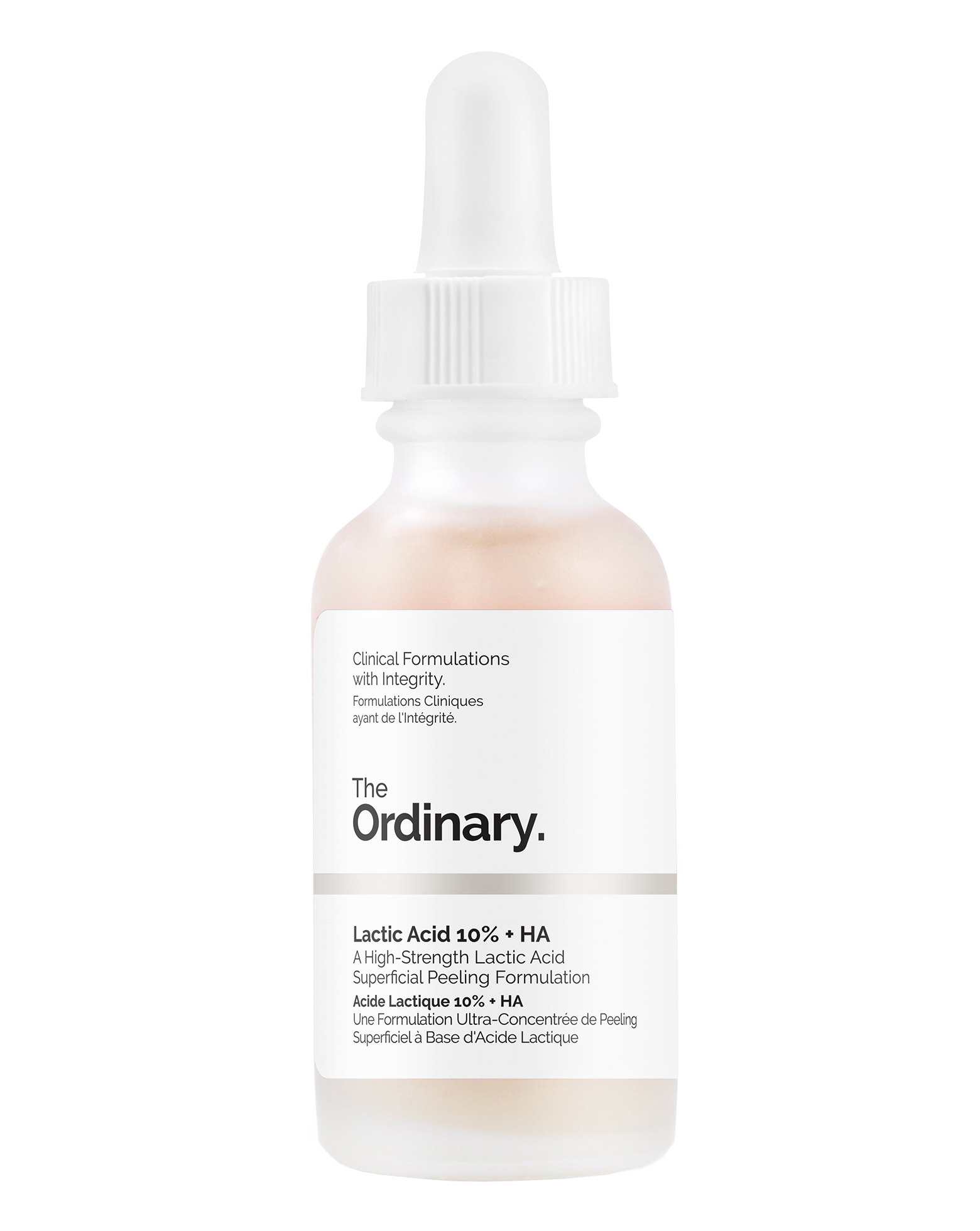
An effective routine should contain a "mixture of both BHAs and AHAs, which are chemical exfoliants and will help reduce oil production as well as help fade pigmentation or staining in the skin that acne leaves behind when the spots clear," explains Mahto. This cult serum uses lactic acid—an AHA—to gently exfoliate and improve skin tone and texture.
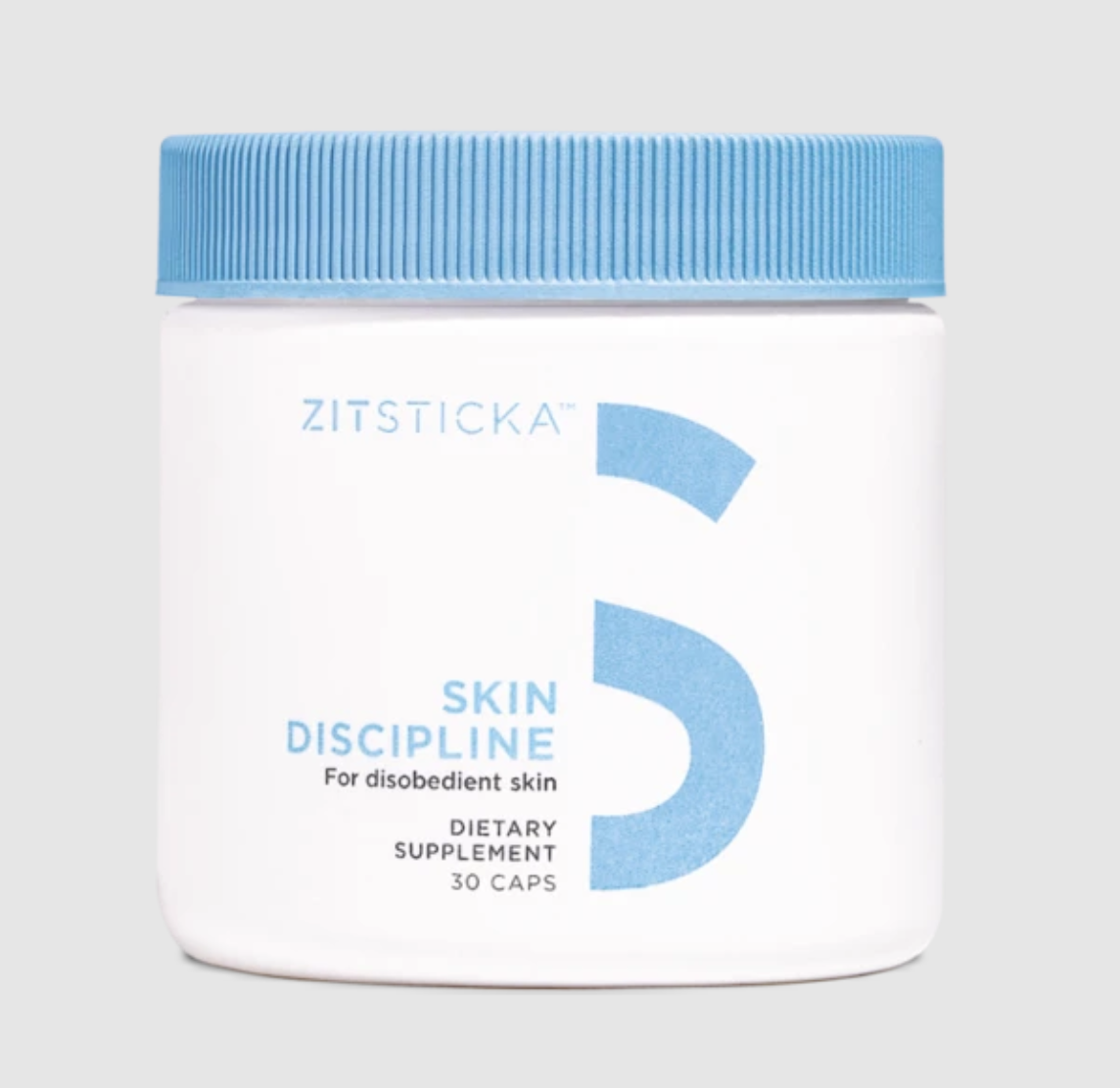
As a huge ZitSticka fan, I'm in the front of the queue for this new supplement launch. Clinically proven to reduce common acne in 12 weeks, it's a "drug-free formulation of vitamins, minerals, probiotics and fatty acids to help minimise breakouts by easing surface-level inflammation, regulating sebum levels and balancing skin-supportive bacteria—all from the inside out," Miller and Kaplan.
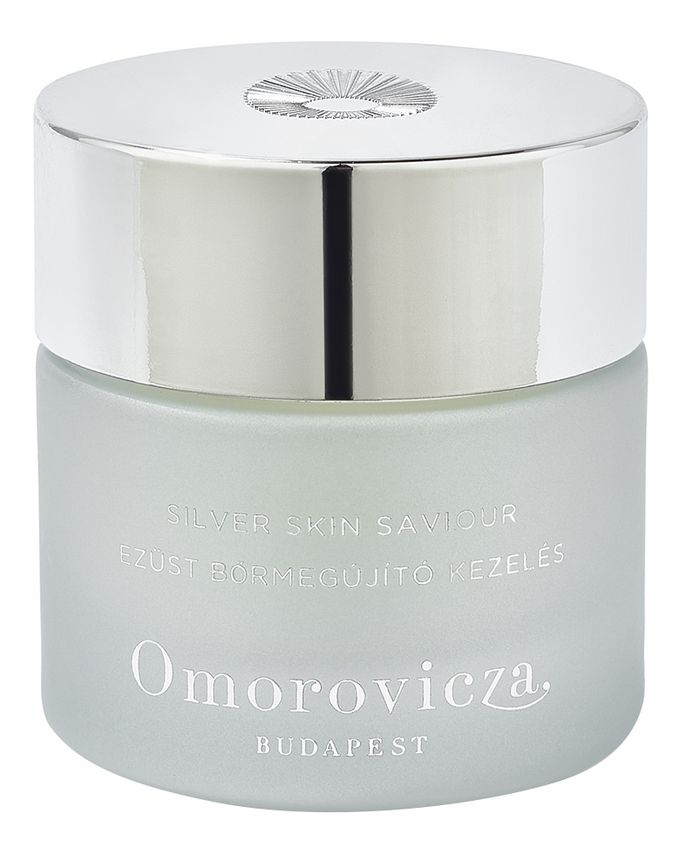
"Add a treatment step to your routine to make a real difference," recommends de Heinrich. "Silver Skin Saviour really is our go-to acne treatment, perfect for blemish- and imperfection-prone skin, it's formulated with colloidal silver—a powerful antibacterial ingredient that is a superb topical treatment for blemishes."
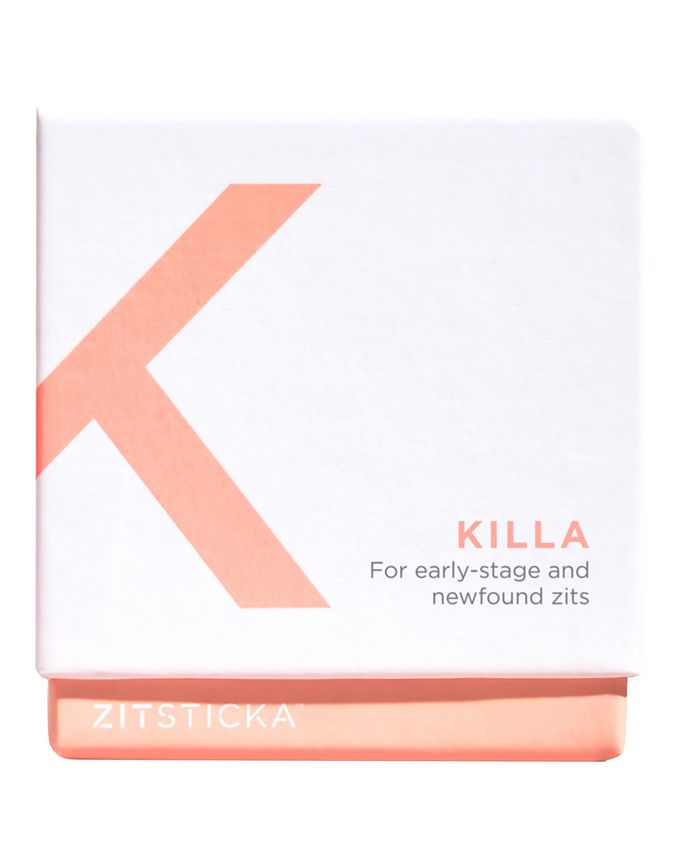
"For the stubborn, underground, hard-to-reach zit, Killa is layered with tiny microdarts that self-dissolve to flood the epicentre of your early stage zit with targeted ingredients," say Miller and Kaplan. "Most zit patches do their work on the skin's surface, but Killa is able to travel deeper because of its microdarts." Plus, if you're a serial face toucher like I am, then these will help prevent you from picking at blemishes.
Up next, these will be the 10 biggest skincare trends of 2021.
Mica Ricketts is a freelance beauty editor, copywriter and regular contributor toBest Knockoff Luxury Clothing UK. She also writes for titles including Marie Claire UK, Refinery 29 and Cosmopolitan, and previously worked atBest Knockoff Luxury Clothing UK as Beauty Editor. With experience in both editorial and content management, she also works with beauty brands and small businesses on brand messaging and content strategy. As a busy mum of two, she is passionate about finding efficacious beauty products that can disguise all signs of tiredness with minimal effort.
